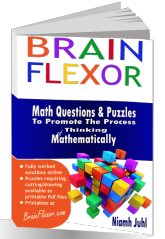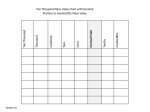The Parents Resource
To Eliminating Math Problems
Your child probably has math problems that need to be sorted out if you are the sequestered math homework helper on a daily basis.
To know whether or not your child needs to catch up, you must know what is expected of them. Familiarize yourself with their Grade Level Expectations.
Before you plunge into tutoring your child head first know what style of learning they lean towards! This will save you both hours of work and frustration!
Also be sure that you are comfortable in in your knowledge of the basic maths required.
I want to use manipulatives, but I cant believe the price!
Tutoring your child may be frustrating at times. You may need motivation yourself!
Math anxiety is very real, and can be crippling. It also can be chased out the window for good!
Are you the delegated homework helper of your family?
Is math help requested regularly? Your child could be having some math problems that with a little effort on your part and that of your child can be sorted out!
Rote learning (memorization) is an old fashioned way of teaching math that ensures the right answer, but does not necessarily encourage understanding.
Your child must understand math at every level, to succeed at the next level. If they continuously ask for help, then there is probably an issue with their comprehension of what they are doing. Using printable math worksheets as extra practice will help. This however should not be done, until your child has learned and understood the topic. There is no point practicing something the wrong way!
Be familiar with what your child is expected to know!
I highly suggest that before you start pulling your hair out, and stressing over the details of getting them to a math tutor establish whether or not their math problems are indeed a problem!
Ensure you know their Grade Level Expectations. Perhaps their teacher is just throwing in an extra hard question with homework to test the class readiness for the next topic to be studied!
If your child is having math problems now, be assured you can help them get over them. Unfortunately, there may be some digging around to do first!
How do you establish what they know and don't know?
I have created a Math Knowledge Questionnaire. This is a free printable math worksheet that will help you establish what your child knows and doesn't know.
Dont be alarmed at the size of this document! It is intentionally made to cover every math goal from Kindergarten to 6th Grade.
To use this (and I highly recommend you do), print it off and give it to your child to complete. The lower grade students, may need help with the reading of the question however do not prompt any answers!
You will notice that there is NO indication of grade Level on the questionnaire. Students (even 5th and 6th graders) should start at question 1 and work their way through all the questions. This is so that when a student stops, and cant answer any more questions, there is no indication of their level for them to see!
You of course must know their math skills, so I have an Analyze The Math Knowledge Questionnaire printable just for you! This has all the details you need to establish in what area, if any, your child has a math problem.
Math Problems have a sneaky habit of manifesting themselves. This will always happen, as every grade level your child moves into will assume competency and understanding of the previous grade. If your child is struggling with early arithmetic, chances are, they will just continue to struggle with math in general. You need to help them now!
You have established your child has math problems - now what?
Well there are a few things you can do.
- Take them to a Math Tutor
- Become their in home math helper - their own personal math tutor!
Steps to sorting out any math problems
- Establish what your child knows.
- Establish what they need to know.
- Identify what it is they must learn to be where they should be.
- Devise a plan that will work for them and YOU.
- Enjoy the moment when they exclaim I Can Do Math Now!
- Move on and conquer the next task!
If your child has completed the Math Knowledge Questionnaire and you have Analyzed the results, you have already completed steps one through three of the above list.
Now it is on to step four!
The first thing you must do, when creating your plan of action, is to know what style of learning your child favors! Once you are armed with this information, tutoring becomes quite straight forward, and can be fun also!
Yes math can be fun! However I would highly recommend you dont stick to one particular style totally, but blend in some of the other styles.
You know the expression Hear it, read it, write it, learn it!
The fact is, no matter what your child's style of learning is math tests tend to come in one style. The written list of questions. Styles of learning will dictate the best way your child can comprehend the knowledge but unfortunately, they will have to conform to the majority when actually taking tests!
Use this website to navigate your way through the five areas of math taught at elementary school level. There are free printable math worksheets for math practice, and for tutoring in every section.
Remember - practice makes perfect! And when perfection is achieved math problems will no longer exist!
You want to use math manipulatives, but you can't believe the price?
I am right there with you! Each type of manipulative, such as base 10 blocks, on their own are not so expensive. However if you want to get three four or five, you can kiss about $100 to $150 good buy!
Now of course, when you think about how much you are actually saving by tutoring your child (approximately $30.00 a session) it is a small price to pay!
However I am quite a frugal mom, so I have compiled directions along with material lists for you to make different manipulatives yourself.
This can actually be a fun kick-off to your tutoring sessions with your student, if you both like arts and crafts!
When you (and you will) feel frustrated!
People must first get a Masters in Education, before they can become teachers! There is a good reason for this! Teaching is an art all onto itself! Realize this before you embark on the exciting road of tutoring your child. Masters Degrees, in general, take between eighteen months and two years to complete. If you are not a teacher, then you are heading into the realm of education blinded.
But the one thing you must always exercise is patience.
If your child doesn't understand something, or just doesn't get it they are not doing this on purpose. They will want to please you as much as you want to help them!
I offer many useful hints and tips that may assist you on your journey as tutor.
After patience, the next biggest thing is, even though math is a right or wrong subject, black and white; and there is only one answer to most questions there is not only one way to teach a procedure or reach the answer.
If the way you have been trying just isn't working try another way!
Most teachers will tell you that the biggest thing that keeps them motivated to do what they do, is seeing a student going from not knowing something to the euphoric moment of hey, I can do it!
You must stay motivated also! Use your childs Math Knowledge Questionnaire to keep track of everything they are learning. Give yourself a gold star every time any step is accomplished!
Of course dont keep all the stars for yourself! Your child has worked hard also!
Do something small to celebrate the little accomplishments something with your child so they are celebrating too. When you see those math problems getting lesser and lesser you will feel more motivated to continue!
Also, be sure to make and maintain contact with your child's teacher. Because your child doesn't get or understand something, does not mean they have an incompetent or uncaring teacher. Remember their teacher has 20 plus students, all probably having a little difficulty with some subject not just math.
My thoughts are, if you let the teacher know what you are doing at home a number of things may happen.
They may be able to give you pointers on areas to concentrate on.
They may have some invaluable tips on how to approach something.
They could very well point you to another great source of material to help you with your endeavours.
Does your child fret at the very thought of doing math?
A final note on math problems. Because of these problems, your child could have or develop math anxiety. This has to be sorted out and the sooner the better.
Math Anxiety is as real as any of the other math problems. Don't treat this potential problem with flippancy. Because this is such a problem for some math students, I have created a page specifically for it.
Math problems are simply that, problems. And all problems when recognized can be sorted out. Math has such a huge impact on our daily lives. This would in itself imply that math problems will have a huge impact on our daily lives.
Your child has a right to education, and more importantly has the right to enjoy their education. Lets not let anything get in the way of that!
The day your child exclaims I Can Do Math Now! step five of the above list will be complete. It will be up to you to get going on step six (if there is indeed a step six!)
Eliminate more math problems with hints and tips from the Parent Tutor section or explore all that Printable Math Worksheets has to offer.
Keep In Touch!
You can send me a quick message, subscribe to K6Math Fun & Update, or join my Facebook Page - K6Math. Choose all the options so you don't miss any of the new material added to this site.






